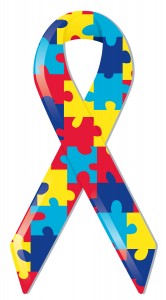An official website of Montgomery County, Maryland
An official website of
Montgomery County, Maryland MC311
Montgomery County, Maryland MC311
National Autism Awareness Month
For Immediate Release: Wednesday, April 3, 2013
April is National Autism Awareness Month. Individuals with medical conditions like Alzheimer's, Autism, or Down's Syndrome have a propensity to wander. As police officers, we are often called to a home or area to assist a caregiver with locating a person who has wandered. The department recognizes that caregivers of loved ones with these disorders have a huge responsibility. Below are some measures that a loved one can take to prevent/decrease wandering and steps that can be taken to ensure a quick recovery if the person does leave home. Autism2 (Original Image)
Autism2 (Original Image)- Make it difficult for your loved one to wander. Install an alarm if possible.
- Caregivers can reach out to their neighbors before an incident of wandering occurs and explain the situation. Examples of letters that can be given to neighbors can be found on the Project Lifesaver area of our website.
- Make sure the person has identification on them at all times.
- Take a full-length photo and head-shot of your loved one. Store the photos electronically. If the person goes missing, the photos can be sent to law enforcement quickly.
- Call 911 immediately if your loved one has wandered so that police can respond.
- As summer approaches, it is important to emphasize that persons with Autism are often attracted to water sources such as pools, ponds, and lakes, and may gravitate towards bodies of water when they wander. Drowning is the number one cause of premature death for individuals with Autism. For caregivers of children with Autism, teaching your child to swim early could absolutely save their life! Also, knowing where bodies of water (lakes, pools, etc.) are in your neighborhood is important.
Caregivers, community members, and officers can all work together to prevent wandering and ensure that individuals are quickly located if they do wander. For more information about Project Lifesaver or for assistance in dealing with wandering, please contact Officer Laurie Reyes at 301-840-2788 or via email.
RLI
# # #
Release ID: 13-101
Media Contact: mcpnews
Categories: press-releases

